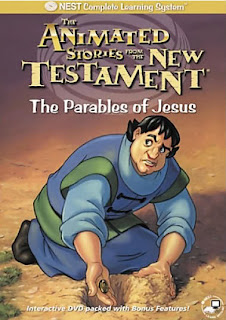"The disciples came to him and asked, 'Why do you speak to the people in parables?' 'This is why I speak to them in parables: Though seeing, they do not see; though hearing, they do not hear or understand.'" – Matthew 13:10, 13 (NIV)
Jesus often taught His followers using stories called parables. Three of the best-loved parables—the Parable of the Talents, the Parable of the Rich Man and Lazarus, and the Parable of the Two Sons—are presented together to reinforce important principles. They teach us how to be good stewards of our time and of the things that we have been given. In a world of self-centeredness, these timeless truths help us to focus on our faith in God and on His power to help us live our lives in accordance with His teachings.
Did You Know? The Parable of the Rich Man and Lazarus has been called the most vivid account of the afterlife to be found in the New Testament!
“The disciples came to him and asked, ‘Why do you speak to the people in parables?’ ‘This is why I speak to them in parables: Though seeing, they do not see; though hearing, they do not hear or understand.’”– Matthew 13:10, 13 (NIV)
Main Characters: Jesus, the two sons, Lazarus, the rich man and the three servants Scriptural References: Matthew 13: 11-17; Matthew 21: 28-32; Matthew 25: 14-30; Luke 16: 19-31
Overall Theme: The video reinforces the principles of forgiveness, compassion and stewardship. The parables teach us to be good stewards of our time and the things we have been given.
Summary: The Parables of Jesus includes three of the most loved parables: The Two Sons, The Rich Man and Lazarus and The Talents. The video begins with Jesus telling the story of the two sons. It is harvest time and the two sons cannot be found. Their father searches out to find his sons so the harvest would not be lost. The oldest son, who is suppose to inherit the vineyard, is found relaxing by the shore and promises to come help but does not. The younger son is frustrated about doing all the work since his brother will inherit the land. He refusing to come help, but changes his mind and returns to the vineyard to ask his father for forgiveness and to help with the harvest. In the end, the father rewards the youngest son with the vineyard because he was always there for him and used his time wisely. Next, the parable of The Rich Man and Lazarus is told by Jesus. Lazarus is very poor and is searching for food in front of a rich man’s house. He begs for the scraps from the rich man’s plate. The rich man refuses to help Lazarus. Both Lazarus and the rich man die and find themselves in two very different places. Father Abraham welcomes and comforts Lazarus while the rich man is in torment because of his actions on earth. The last parable, The Talents, is a teaching about the Kingdom of Heaven. A master is preparing to go on a long journey and leaves his three servants entrusted with his property and money. He instructs them to multiply their coins and that there will be an accounting upon his return. All will receive the same reward if they do their best. Two of the three use their time wisely, multiply their coins and help others while investing their money. The third servant does not use his time wisely nor invest his money. Upon the master’s return, he rewards the two servants whom used their time wisely and for the good of others, while the third is not rewarded because he did not use the talents that he was given. Did You Know? The Parable of the Rich Man and Lazarus has been called the most vivid account of the afterlife to be found in the New Testament!


Post a Comment